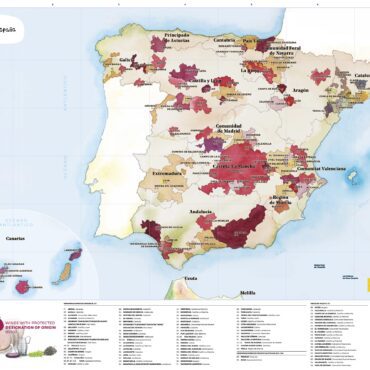-
 play_arrow
play_arrow
BayRadio Listen Live Broadcasting in Spain


Heart failure, diabetes, kidney disease and COPD are chronic pathologies that are most aggravated by high temperatures
• If you feel dizzy, tired, weak and have cramps, it is advisable to go to a medical centre
During the summer period and especially with extreme high temperatures, a multitude of chronic pathologies can worsen. “Among the diseases that can worsen are cardiovascular problems such as heart failure and hypertension, diabetes mellitus, respiratory problems such as COPD or asthma, nephrological issues, cerebrovascular issues such as strokes or multiple sclerosis. Even dermatological problems such as acne, rosacea and lupus, and other problems”, explained Dr. Jose Luis Lasaga, head of the Quirónsalud Alicante Emergency Service.
“The symptoms of this aggravation,” says Dr. Fulgencio Molina, head of the Quirónsalud Murcia Emergency Service, “can range from a feeling of tiredness, weakness, cramps, to those that are potentially more dangerous, such as dehydration and ion imbalance. In the face of these symptoms, it is very important to consult a specialist.”
How heat affects each of these diseases
Within cardiovascular diseases, patients with high blood pressure may suffer from hypotension due to heat, with the possibility of dizziness, sweating and loss of consciousness. “In addition,” adds Dr. Juan Costell, head of the Quirónsalud Torrevieja Emergency Service, “in summer time when routines change, we can be inconsistent with taking medication to treat our illnesses, which can cause an increase in blood pressure.” For his part, adds Dr. Lasaga, “patients suffering from heart problems can suffer from dehydration and hypotension since the heart has less reserve capacity to eliminate excess heat from the body and can become overloaded and enter into acute pulmonary edema. It is important to take into account the medication that patients take, which usually include diuretics and beta-blockers, and adjust them for summer to avoid these problems”.
For their part, diabetic patients are more sensitive to heat. They are at a greater risk of suffering from dehydration and can suffer issues that prevent the sweat glands from regulating body temperature. “This dehydration,” says Dr. Molina, “can prompt an increase in glucose in the body, which can cause increased thirst, dry skin, fatigue, blurred vision.” The vasodilation produced by the heat also causes an increase in the speed of insulin absorption, which can lead to hypoglycemia with the onset of dizziness, altered level of consciousness, agitation…”, emphasizes Dr. Lasaga.
People with respiratory diseases such as COPD, asthma or bronchitis may have their symptoms aggravated during the summer season due to the increased heat and environmental dryness that increase the amount of work that our body has to do to maintain normal body temperature. “which means an increase in oxygen requirements. In addition to the fact that the increase in heat and pollution increase the concentration of ozone and can trigger an asthma attack”, indicates the head of emergency at Quirónsalud Alicante.
Finally, Dr. Costell points to an increase in mortality and hospitalizations in patients with end-stage kidney disease.
Advice for chronic patients in the face of high temperatures
Quirónsalud specialists recommend following the guidelines below:
• Avoid sudden changes in temperature as far as possible. In the home, the air conditioning must be between 24-26 degrees
• Do not expose yourself to the sun during peak hours of the day.
• Always stay well hydrated and avoid excessive consumption of sugary drinks and alcohol as they can cause problems such as dehydration or arrythmia
• During long trips, avoid prolonged immobilization and if this is unavoidable in some selected patients, the use of anticoagulants may be prescribed
• Avoid destinations with very hot climates and altitudes above 3000 meters as it causes an increase in oxygen consumption.
• Wear light and breathable clothing.
• Perform moderate exercise only in the hours of lowest temperature.
• It is very important to take care of the diet, increase the consumption of fruits and vegetables and moderate consumption of alcohol, fats and sugar.
• It is also very important not to forget to take the medication, and always travel with a medical report.
About Quirónsalud Torrevieja
-International medical team
-Free translation service
-We work with all national and international medical insurers
-General emergencies 24/7
-Pediatric daytime emergencies
Address:
C/Partida de la loma s/n
CP:03184 Torrevieja
Written by: BayRadio News
Similar posts
Recent Posts
- Robotic Surgery for Prostate Cancer: What Is Radical Prostatectomy and How Does the Da Vinci Robot Improve It
- What Is Fibromyalgia? Symptoms and Treatments of an Invisible Illness That Requires Specialized Attention
- AMASVISTA Glass: 10 reasons to choose SUNFLEX glass curtains
- Robotic Surgery, Immunotherapy and Comprehensive Care Take Centre Stage at Pancreatic Cancer Conference at Quirónsalud Torrevieja
- Robotic Surgery Against Ovarian Cancer: Greater Precision, Less Pain and Faster Recovery

Ctra. Cabo La Nao, CC La Nao, Local 6 03730 Javea, Alicante, Spain
Advertise with us
Do you have a business in Spain? Do you provide a service to the expat community in Spain? Would you like your message to reach over 500.000 people on a weekly basis?
BayRadio is a community orientated radio station offering fantastic content to our many listeners and followers across our various platforms. Contact us now and find out what Bay can do for you!
Our business is helping your business grow.
BAY RADIO S.L. © 2024. ALL RIGHTS RESERVED. WEB DESIGN BY MEDIANIC







